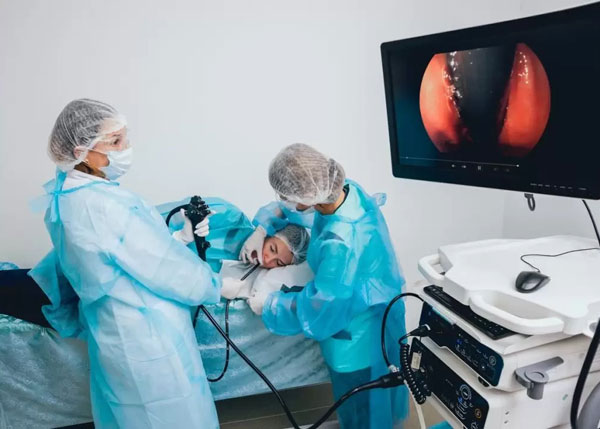Gastroscopy
Gastroscopy (Esophagogastroduodenoscopy):
It is performed using a flexible instrument with a tiny HD camera on the end. It is passed through the mouth to examine the esophagus, stomach, and duodenum.
Preparing for gastroscopy is very simple. A 6-hour fasting period is sufficient, but if you use aspirin or similar anticoagulants, you should stop at least 3 days before the procedure.
Before the procedure, the anesthesiologist applies deep sedation (deep sleep) through a thin vascular access opened in the arm. This way, you won't feel any pain at all during the procedure. The procedure takes about 15 minutes. After 30 minutes of anesthesia, everything returns to normal and the patient feels better. However, the patient is advised not to do anything that requires attention for 2-3 hours due to the anesthesia.
During gastroscopy, biopsies can be taken from the stomach, esophagus and duodenum to stop bleeding or remove blockages.
In our country, a gastroscopy is done if you have abdominal pain, bloating, or bleeding. It is not used for cancer screening; however, it is recommended that people with a family history of stomach cancer have a gastroscopy every year.

